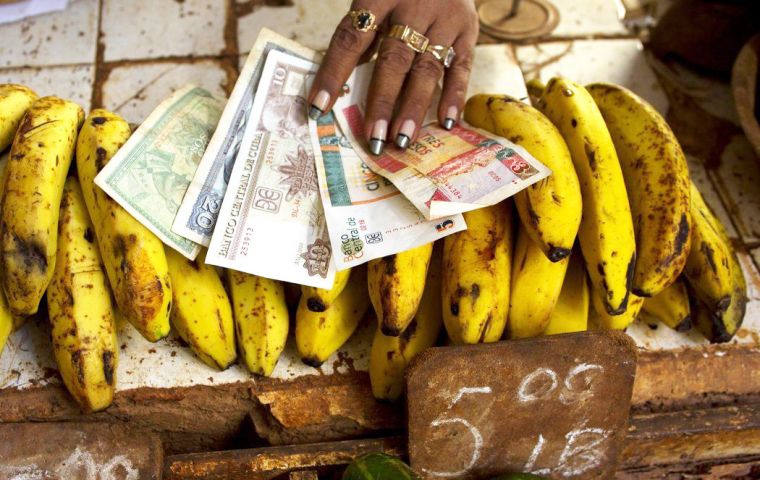MercoPress. South Atlantic News Agency
Hard times in Cuba: electricity and fuel cuts, slashed imports and payments to suppliers delayed
 Cuba’s foreign currency earnings have fallen by billions of dollars since global prices for oil and other commodities crashed in 2014.
Cuba’s foreign currency earnings have fallen by billions of dollars since global prices for oil and other commodities crashed in 2014. Cuba has not provided a detailed breakdown of key economic activity in its annual statistical abstract for the first time this century, leaving would-be investors more in the dark than usual about the cenrtralized-run economy.
The abstract for 2016, published online in June and July by the National Statistics Office, omitted a chapter that usually provides specifics on gross domestic product, exports and money supply as well as data on debt. Those details are sometimes provided a few months later, but last year they failed to materialize. It was not clear if the information would be released at a later date by the National Statistics Office.
The government surprised most analysts in December when it announced Cuba’s economy grew 1.6% last year, rebounding from a recession in 2016. Moody’s and the Economist Intelligence Unit forecast continued recession for 2017, while the U.N. Economic Commission for Latin America and the Caribbean (Cepal) predicted an anemic 0.5% growth.
“The abnormal delay in the macroeconomic indicators for 2016 casts doubt on the official estimate for GDP growth in 2017,” said Carmelo Mesa-Lago, professor emeritus of economics at Pittsburgh University and author of numerous books on Cuba’s economy.
“How is it possible authorities can release that estimate at the end of December and not release the entire national accounts for 2016 more than one year later?” he said.
Cuba’s foreign currency earnings have fallen by billions of dollars since global prices for oil and other commodities crashed in 2014. Service income, which includes the sale of professional services to several oil producing developing countries such as Venezuela, fell by more than a billion dollars in 2016, on top of a similar reported decline in goods exports.
The government has announced cuts in electricity and fuel consumption, slashed imports and, according to diplomats and businessmen, has fallen behind on payments to suppliers and joint venture partners.
“Any investor will want to have reliable data,” said Bert Hoffman, a Latin America expert at the German Institute of Global and Area Studies. “Statistical data are not a luxury but a valuable and often necessary resource, and its lack a serious drawback for development,” he said.
Three Cuban economists said they suspected the government was burying bad news. “Whenever things are bad the response from the government is to hide information.”




Top Comments
Disclaimer & comment rulesCommenting for this story is now closed.
If you have a Facebook account, become a fan and comment on our Facebook Page!